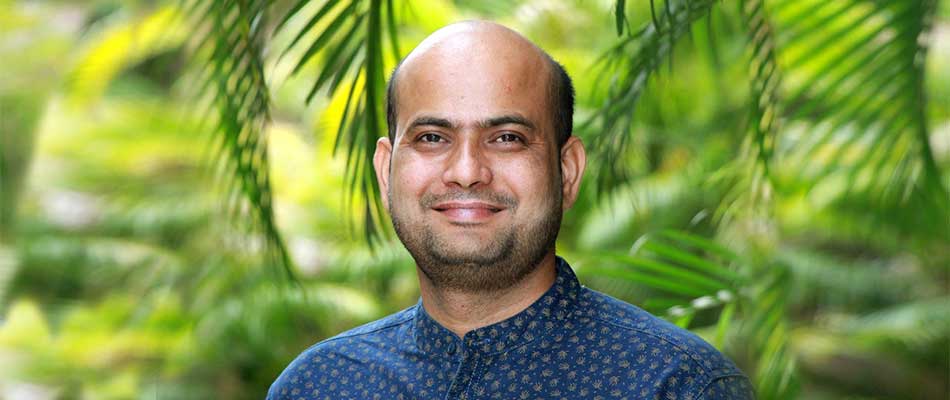The ideas and pedagogical tools of experiential-learning are integral part of the liberal arts/education. These pedagogical tools and methods have a unique way of combining classroom learning with learning about and from the real world experiences and immersion. Experiential-learning pedagogy encourages students to become aware of and recognise the socio-economic realities of a society, most often a society to which the students themselves belong. An important component of this process involves students to study and understand different socio-economic and cultural issues, by working with organisations for a brief period of time during their degree. The students familiarize themselves with issues faced by different sections of society, the role and development of different organisations and institutions working on respective issues at grassroots. Students, in a structured and well-supervised format, work closely with a wide range of community organisations and are required to contribute towards their goals and objectives. Students of experiential learning programmes earn academic credits while getting hands-on experience in tackling socio-economic issues and developing critical insights and reflections about the society.
There is an emerging concept especially in developed parts of the world that has come to be known as Service-Learning (S-L). The concept is getting increasingly popular in the institutes of higher education as it seems to bring together academic knowledge, need based problem solving through innovation and entrepreneurship in real-life contexts. The participants in this format earn academic credits by working on identified community needs. There are primarily two parts or components of service-learning programmes. In S-L programs students focus on field-based project work where they are taken to a location, generally a backward or underdeveloped one where they work on already identified community needs and provide ‘solutions’.
Liberal arts education curricula seem to be enthusiastic about the service-learning pedagogy. Given that it tries to combine engagement and problem-solving, the liberal arts curricula and the service-learning pedagogy sound like a natural match to many. However, the format and implications of service-learning module need some critical evaluation and contextualizing to assess the suitability of the same across a wide range of socio-economic, political contexts and development needs before it can be incorporated as liberal arts pedagogy across different campuses especially in the developing societies.
An obvious emphasis of the service-learning module is to create and show impact through application of ideas, introducing products and solutions. The service-learning requires students to work in collaboration with different agencies, stakeholders and institutes including business entities which have various kinds of inherent interests in these projects and curation. It is not uncommon to find that these interests do interfere in the actual execution and learning process of the students. The work load and pressure to create tangible impact, implementation of ‘problem-solving’ innovations and products, choice and deciding on appropriate approaches, and tools, etc. are some of the challenges which students have to face in the process of service-learning. These expectations and ambitions can create serious deterrent in learning from these situations as there is a constant pressure to bring about change in the conditions of the communities. Lack of any substantial and proper knowledge about the communities and cultural context is a valid and common challenge here.
The service-learning pedagogy is guided by a predetermined motive and objective of creating impact which directs all its efforts in this direction and puts lots of emphasis on execution rather than education and creating field expertise and specialists. Since students at the undergraduate level are still exploring their interests and motivations the impact making expectations could lead to a disruption in this process at this level. Exposing the students to social realities to make them emphatic and leave it to them with what they want to do with this experience. Students have a long career and professional journey in front of them where they will be in a better position and more informed about their role in improving the lives and creating an impact in the larger society. The undergraduate liberal education programme is already academically very demanding and students have to follow a strict and disciplined academic routine. The academic rigor of different majors and minors should not be compromised for ambitious post-discipline objectives of service-learning. Students first need to be groomed academically to develop their critical faculties and knowledge base along with exposure to the conditions and problems of the world through experiential learning.
The experiences of development sector have shown that the humanitarian innovations and ideas need to be socially informed and need to take in to consideration socio-economic and cultural environment. A critical aspect of the ‘impact’ creating interventions is how durable and sustainable these projects are as it is evident in a lot of external interventions that once the facilitator agencies or institutions withdraw their support from these projects they become defunct or ineffective. So the real test and impact shall be measured how these ideas and interventions would face and sustain the local conditions, institutional and structural barriers of various kinds. The social innovations have to be socially informed and contextualized for better, inclusive and sustainable solutions.
While learning from the communities and people is the key to all liberal education courses the objectives of delivering solutions and changes to these communities need to be situated in the larger socio-political context. The service-learning impact making strategy needs to realise that socio-economic and developmental problems are structural and policy interventions are important for addressing these issues and for bringing about long-term and sustainable changes in society rather than ‘hit and run’ strategy. Service-Learning interventions are in no way should be considered substitutes of policy making especially in societies where key socio-economic issues require an active and sustained state intervention.
- Prof. Shamsher Singh, Assistant Professor - Sociology


